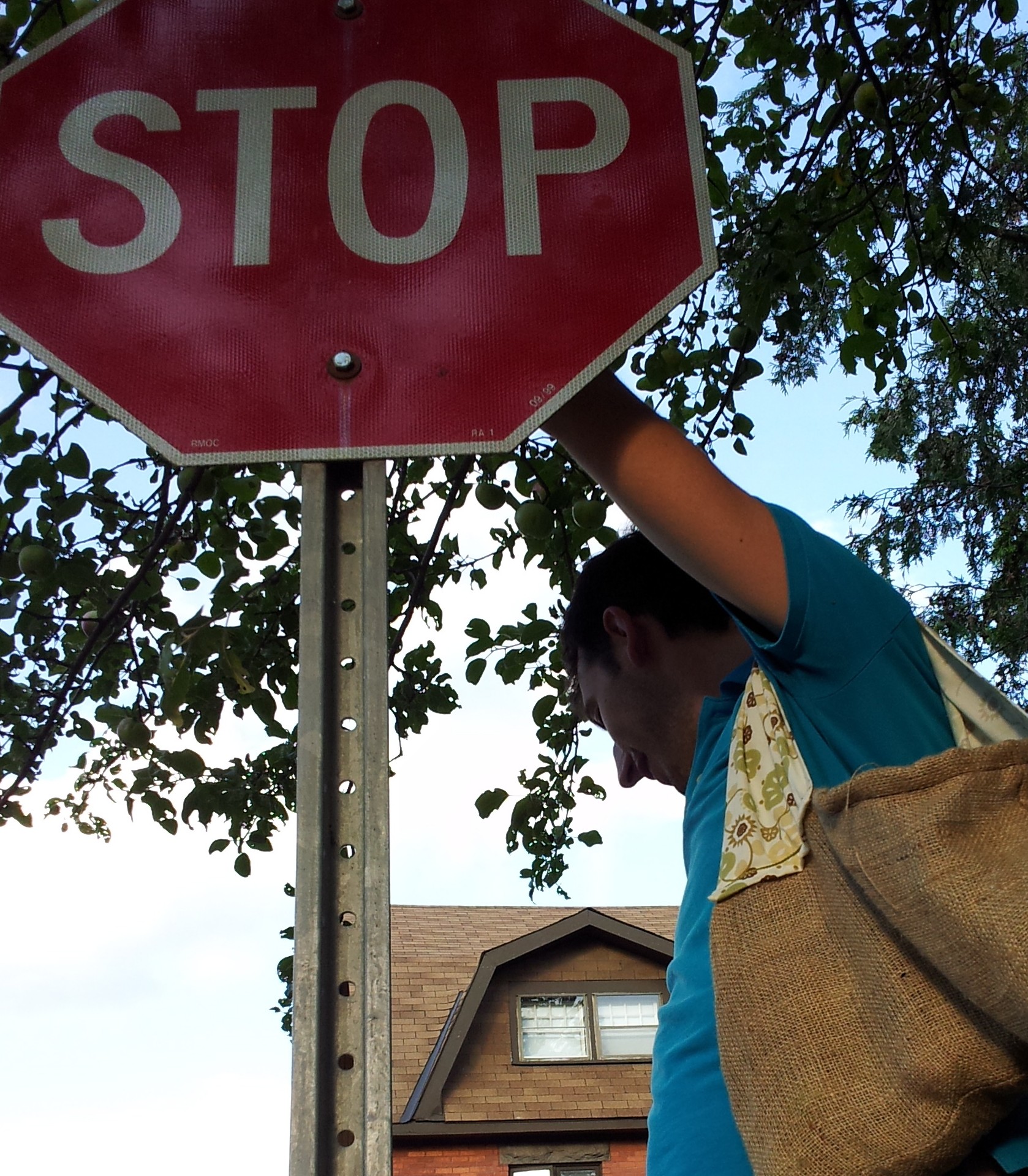
Yes! You can eat urban fruit and nuts!
More and more cities are jumping on board urban fruit and nut harvesting – Ottawa is by no means the first. Hidden Harvest has learned a lot from food rescue friends in Toronto, Edmonton, Calgary, Winnipeg, Victoria, Halifax, Montreal, and Vancouver – just to name a few.
Recently, a list of urban harvest organizations was compiled by Alternatives Journal and published here: A Taste of Canada’s Food-Tree Groups. Excerpt of organization listings, below.
With increased consumption close to home, we naturally wonder about the health of our soil and if we should be eating food growing in the city. A tool we found useful is this decision support tool for urban garden published by Toronto Public Health. This report, Assessing Urban Impacted Soil for Urban Gardening: Decision Support Tool Technical Report and Rationale, says “…fruiting and nutting trees may be grown directly in contaminated soil, and are a good option for high risk gardens where raised beds or containers are not feasible”. Further discussion on this topic in our FAQ.
When preparing harvested food to eat, it is important to follow normal food safety practices such as washing your hands and washing any fruit before eating it, cooking it or storing it.
When harvesting fruit, we do not distribute or use fruit which has been found on the ground (sometimes called “grounders” or “windfall”). The only exception to this rule is when harvesting nuts that have husks and shells intact, protecting the edible nut meat inside.
Urban Harvest Organizations
Not Far From the Tree, founded in 2008, helps Toronto homeowners put their food-bearing
trees to good use, splitting the bounty three ways: tree owners keep one third, volunteers
share another, and the final third is delivered to food banks, shelters, and community
kitchens by bicycle.
St. John’s Fruit Tree Project was created in 2011 to connect fruit tree owners with volunteer pickers, community kitchens and food banks in St. John’s, Newfoundland.
Mississauga Fruit Tree is a volunteer-run, non-profit organization based in Malton, Ontario, which has linked harvesters with backyard tree owners and offered tree care and food preparation programs since 2009.
Fruit Share is a volunteer-led organization formed in 2010 to link fruit owners, volunteers and community groups to collect and share fruit from trees in Winnipeg and elsewhere in Manitoba.
Operation Fruit Rescue Edmonton is a non-profit established in 2009 that organizes volunteers to harvest, process and preserve apples, raspberries and other fruit. It also offers food-preserving events and produces fruit-based products.
Harvest Rescue, operating since 1998 in Nelson, BC, and a project of the Nelson Food Cupboard and the Nelson Cares Society’s Earth Matters program, gathers excess food from farmers, gardeners and fruit tree owners and makes it available to social service agencies.
The LifeCycles Fruit Tree Project, launched in Victoria in 1999 by non-profit LifeCycles, harvests fruit from privately owned trees, dividing the harvest among homeowners, volunteers, food banks and other community organizations, and processing some of the products for sale.
The Central Okanagan Fruit Tree Project, started by a group of volunteers with the Central Okanagan Food Policy Council, demonstrates that even smaller municipalities can make urban foraging work!
A Taste of Canada’s Food-Tree Groups: Urban foraging organizations across the country are feeding the needy – and more. Alternatives Journal, by A\J STAFF, May 2013. http://www.alternativesjournal.ca/sustainable-living/taste-canadas-food-tree-grou




